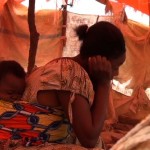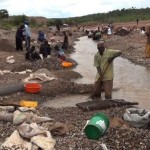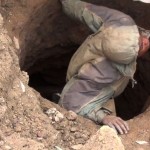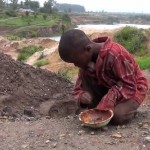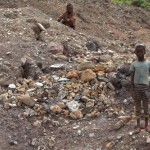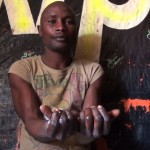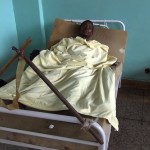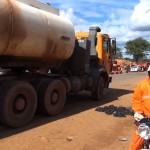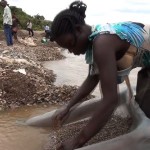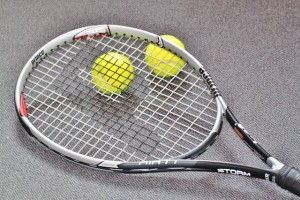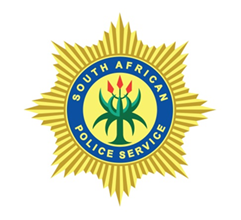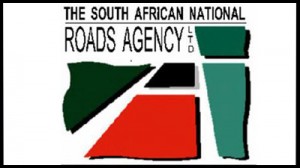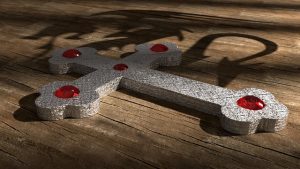At the Mining Indaba held in Cape Town in February this year, the Democratic Republic of Congo (DRC) waved the green flag for business, re-iterating its commitment to enabling global investment in the Congo’s lucrative mining sector. This occurred against the backdrop of rising volatility in South Africa’s mining sector, our enlarged economic footprint in the DRC and the Congo’s grim history of conflict moulded by a relentless scramble for the country’s enormous mineral wealth by nations united by greed. The green flag is certainly being waved. But in the business of mining, green still signifies the colour of money. And whether through brutal proxy wars or corrupt, clandestine mining deals, the world, including South Africa, wants a piece of the DRC.
The artisanal miners, constituting 90% of the DRC’s mining sector, who toil under the most primitive and perilous conditions, have yet to benefit from the largesse of the earth they pound and scratch. Conservative estimates are that 2 million people are actively involved in this sector. With their dependents, this means 15-20% of the population is directly dependent on this dangerous, unregulated activity that constitutes the backbone of the trading economy in the DRC. Twenty percent of the artisanal mining community, or 400,000 miners, sorters, transporters and suppliers, are women. Twice that many are children. They are controlled by illegal traders and security forces, and increasingly marginalised by the advent of new investment in formal mining. The women and children who carry out this work, in particular, are subjected to grave human rights violations, indebted, exploited and manipulated for political and financial gain.
In the first of this 2-part investigation, Special Assignment travelled to Katanga, the richest province in the DRC. Our objective is to investigate the social impact of formal mining on the DRC artisanal – or subsistence – mining sector, and the supply chain that stretches from impoverished men, women and children to the multinational corporations transporting minerals out of the DRC to overseas markets. Dubbed the economic heart and lungs of the Congo, the Copper or Red King, Katanga is enriched with every mineral known to the planet, especially those essential to technology. But at what cost? We encounter a land with clogged lungs and a torn heart, its arteries severed and life-blood seeping through a desiccated skin. We document our journey through this poached earth where, in the name of progress, the prospect of profits has superseded the welfare of its people. And we discover that the chief culprits of this alleged theft on a global scale are not only the marauding militia who, since 1996, have been funded by the DRC’s neighbours, fighting over conflict minerals and in the process, displacing, raping, mutilating and murdering millions Congolese. Multinational businesses have also behaved badly by exploiting the conflict to plunder the DRC’s resources, thereby depriving the country of much needed revenue for socio-economic development. Even more horrifying, one of the organisations established to protect, empower and regulate artisanal miners, is complicit in the exploitation of this impoverished sector.
After the defeat of the M23 rebels, the DRC is more stable now than it has been in decades. But the residue remains of era of violence, dictatorships, corruption and mismanagement. The Ministry of Mines has launched a mining certification process that will impose penalties on companies who do not comply with the DRC’s mining codes of conduct. Inevitably, the devil will be in the details of its implementation and in its ability to force multinationals to practise corporate governance among communities who provide them with immeasurable wealth. And the lessons of artisanal mining in the DRC dare not be lost on South Africa, where escalating poverty, unemployment, unrest and illegal mining have become disturbing fixtures on our topography, 20 years after democracy,
Watch POACHED EARTH produced by Hazel Friedman. It will be broadcast on Special Assignment – on SABC 3 Sundays at 20:00PM.

